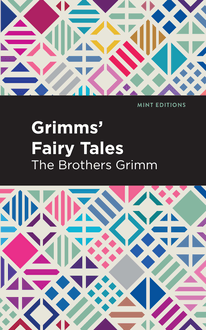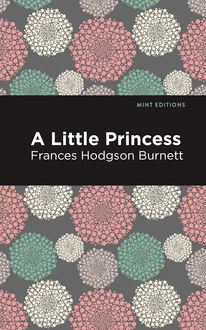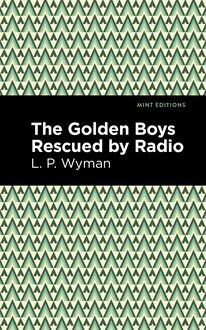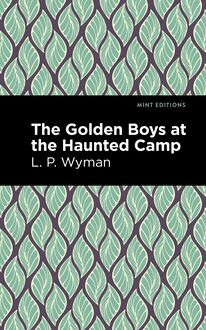-
 Univers
Univers
-
 Ebooks
Ebooks
-
 Livres audio
Livres audio
-
 Presse
Presse
-
 Podcasts
Podcasts
-
 BD
BD
-
 Documents
Documents
-
- Cours
- Révisions
- Ressources pédagogiques
- Sciences de l’éducation
- Manuels scolaires
- Langues
- Travaux de classe
- Annales de BEP
- Etudes supérieures
- Maternelle et primaire
- Fiches de lecture
- Orientation scolaire
- Méthodologie
- Corrigés de devoir
- Annales d’examens et concours
- Annales du bac
- Annales du brevet
- Rapports de stage
La lecture à portée de main
Vous pourrez modifier la taille du texte de cet ouvrage
Découvre YouScribe en t'inscrivant gratuitement
Je m'inscrisDécouvre YouScribe en t'inscrivant gratuitement
Je m'inscrisEn savoir plus
Vous pourrez modifier la taille du texte de cet ouvrage
En savoir plus

Description
“Six generations of readers have found in the story of the March family universal truths about girls, families and growing up.” -The Guardian
“A Natural source of stories...she is, and is to be the poet of children.” -Ralph Waldo Emerson
“The novelist of children...the Thackeray, the Trollope, of the nursery and the schoolroom.”-Henry James
Little Men is the second book in Louisa May Alcott's “Little Women” trilogy of children's books centered around the activities of the March’s, a progressive transcendental New England family. In this novel, a six month period of time during the late 1800's is recounted in the life of Jo Bhaer (née March) at the experimental school she runs with her German husband. A warm and heartfelt classic, Little Men is a delightful novel about the bonds and trust within friendship and family.
When a poor orphan boy, Nat, is dropped on the stairs of Plumfield Estate School he is welcomed with open arms. The school is a unique and loving environment for Nat. He is encouraged in his musical talents and is encouraged to explore patience and the virtues of unity through nursery theater. When Dan, an old friend of Nat's arrives at the school, the tranquility of Plumfield is threatened. Through each student who joins the school, Alcott brilliantly portrays the experiences and the lessons learned. With its deceptively simple plot, the adventures and growth of the thirteen boys and two little girls is a beautifully realistic rendering of personal responsibility in the lives of young children.
With an eye-catching new cover, and professionally typeset manuscript, this edition of Little Men is both modern and readable.
Sujets
Informations
| Publié par | Mint Editions |
| Date de parution | 06 octobre 2020 |
| Nombre de lectures | 0 |
| EAN13 | 9781513268156 |
| Langue | English |
Informations légales : prix de location à la page 0,0500€. Cette information est donnée uniquement à titre indicatif conformément à la législation en vigueur.
Extrait
Little Men
Louisa May Alcott
Little Men was first published in 1871.
This edition published by Mint Editions 2020.
ISBN 9781513266220 | E-ISBN 9781513268156
Published by Mint Editions®
minteditionbooks .com
Publishing Director: Jennifer Newens
Project Manager: Gabrielle Maudiere
Design & Production: Rachel Lopez Metzger
Typesetting: Westchester Publishing Services
C ONTENTS I. N AT II. T HE B OYS III. S UNDAY IV. S TEPPING -S TONES V. P ATTY P ANS VI. A F IRE B RAND VII. N AUGHTY N AN VIII. P RANKS AND P LAYS IX. D AISY ’ S B ALL X. H OME A GAIN XI. U NCLE T EDDY XII. H UCKLEBERRIES XIII. G OLDILOCKS XIV. D AMON AND P YTHIAS XV. I N THE W ILLOW XVI. T AMING THE C OLT XVII. C OMPOSITION D AY XVIII. C ROPS XIX. J OHN B ROOKE XX. R OUND THE F IRE XXI. T HANKSGIVING
Chapter I
N AT
“ P lease, sir, is this Plumfield?” asked a ragged boy of the man who opened the great gate at which the omnibus left him.
“Yes. Who sent you?”
“Mr. Laurence. I have got a letter for the lady.”
“All right; go up to the house, and give it to her; she’ll see to you, little chap.”
The man spoke pleasantly, and the boy went on, feeling much cheered by the words. Through the soft spring rain that fell on sprouting grass and budding trees, Nat saw a large square house before him, a hospitable-looking house, with an old-fashioned porch, wide steps, and lights shining in many windows. Neither curtains nor shutters hid the cheerful glimmer; and, pausing a moment before he rang, Nat saw many little shadows dancing on the walls, heard the pleasant hum of young voices, and felt that it was hardly possible that the light and warmth and comfort within could be for a homeless “little chap” like him.
“I hope the lady will see to me,” he thought, and gave a timid rap with the great bronze knocker, which was a jovial griffin’s head.
A rosy-faced servant-maid opened the door, and smiled as she took the letter which he silently offered. She seemed used to receiving strange boys, for she pointed to a seat in the hall, and said, with a nod:
“Sit there and drip on the mat a bit, while I take this in to missis.”
Nat found plenty to amuse him while he waited, and stared about him curiously, enjoying the view, yet glad to do so unobserved in the dusky recess by the door.
The house seemed swarming with boys, who were beguiling the rainy twilight with all sorts of amusements. There were boys everywhere, “up-stairs and down-stairs and in the lady’s chamber,” apparently, for various open doors showed pleasant groups of big boys, little boys, and middle-sized boys in all stages of evening relaxation, not to say effervescence. Two large rooms on the right were evidently schoolrooms, for desks, maps, blackboards, and books were scattered about. An open fire burned on the hearth, and several indolent lads lay on their backs before it, discussing a new cricket-ground, with such animation that their boots waved in the air. A tall youth was practising on the flute in one corner, quite undisturbed by the racket all about him. Two or three others were jumping over the desks, pausing, now and then, to get their breath and laugh at the droll sketches of a little wag who was caricaturing the whole household on a blackboard.
In the room on the left a long supper-table was seen, set forth with great pitchers of new milk, piles of brown and white bread, and perfect stacks of the shiny gingerbread so dear to boyish souls. A flavor of toast was in the air, also suggestions of baked apples, very tantalizing to one hungry little nose and stomach.
The hall, however, presented the most inviting prospect of all, for a brisk game of tag was going on in the upper entry. One landing was devoted to marbles, the other to checkers, while the stairs were occupied by a boy reading, a girl singing a lullaby to her doll, two puppies, a kitten, and a constant succession of small boys sliding down the banisters, to the great detriment of their clothes and danger to their limbs.
So absorbed did Nat become in this exciting race, that he ventured farther and farther out of his corner; and when one very lively boy came down so swiftly that he could not stop himself, but fell off the banisters, with a crash that would have broken any head but one rendered nearly as hard as a cannon-ball by eleven years of constant bumping, Nat forgot himself, and ran up to the fallen rider, expecting to find him half-dead. The boy, however, only winked rapidly for a second, then lay calmly looking up at the new face with a surprised, “Hullo!”
“Hullo!” returned Nat, not knowing what else to say, and thinking that form of reply both brief and easy.
“Are you a new boy?” asked the recumbent youth, without stirring.
“Don’t know yet.”
“What’s your name?”
“Nat Blake.”
“Mine’s Tommy Bangs. Come up and have a go, will you?” and Tommy got upon his legs like one suddenly remembering the duties of hospitality.
“Guess I won’t, till I see whether I’m going to stay or not,” returned Nat, feeling the desire to stay increase every moment.
“I say, Demi, here’s a new one. Come and see to him;” and the lively Thomas returned to his sport with unabated relish.
At his call, the boy reading on the stairs looked up with a pair of big brown eyes, and after an instant’s pause, as if a little shy, he put the book under his arm, and came soberly down to greet the new-comer, who found something very attractive in the pleasant face of this slender, mild-eyed boy.
“Have you seen Aunt Jo?” he asked, as if that was some sort of important ceremony.
“I haven’t seen anybody yet but you boys; I’m waiting,” answered Nat.
“Did Uncle Laurie send you?” proceeded Demi, politely, but gravely.
“Mr. Laurence did.”
“He is Uncle Laurie; and he always sends nice boys.”
Nat looked gratified at the remark, and smiled, in a way that made his thin face very pleasant. He did not know what to say next, so the two stood staring at one another in friendly silence, till the little girl came up with her doll in her arms. She was very like Demi, only not so tall, and had a rounder, rosier face, and blue eyes.
“This is my sister, Daisy,” announced Demi, as if presenting a rare and precious creature.
The children nodded to one another; and the little girl’s face dimpled with pleasure, as she said affably:
“I hope you’ll stay. We have such good times here; don’t we, Demi?”
“Of course, we do: that’s what Aunt Jo has Plumfield for.”
“It seems a very nice place indeed,” observed Nat, feeling that he must respond to these amiable young persons.
“It’s the nicest place in the world, isn’t it, Demi?” said Daisy, who evidently regarded her brother as authority on all subjects.
“No, I think Greenland, where the icebergs and seals are, is more interesting. But I’m fond of Plumfield, and it is a very nice place to be in,” returned Demi, who was interested just now in a book on Greenland. He was about to offer to show Nat the pictures and explain them, when the servant returned, saying with a nod toward the parlor-door:
“All right; you are to stop.”
“I’m glad; now come to Aunt Jo.” And Daisy took him by the hand with a pretty protecting air, which made Nat feel at home at once.
Demi returned to his beloved book, while his sister led the new-comer into a back room, where a stout gentleman was frolicking with two little boys on the sofa, and a thin lady was just finishing the letter which she seemed to have been re-reading.
“Here he is, aunty!” cried Daisy.
“So this is my new boy? I am glad to see you, my dear, and hope you’ll be happy here,” said the lady, drawing him to her, and stroking back the hair from his forehead with a kind hand and a motherly look, which made Nat’s lonely little heart yearn toward her.
She was not at all handsome, but she had a merry sort of face that never seemed to have forgotten certain childish ways and looks, any more than her voice and manner had; and these things, hard to describe but very plain to see and feel, made her a genial, comfortable kind of person, easy to get on with, and generally “jolly,” as boys would say. She saw the little tremble of Nat’s lips as she smoothed his hair, and her keen eyes grew softer, but she only drew the shabby figure nearer and said, laughing:
“I am Mother Bhaer, that gentleman is Father Bhaer, and these are the two little Bhaers. Come here, boys, and see Nat.”
The three wrestlers obeyed at once; and the stout man, with a chubby child on each shoulder, came up to welcome the new boy. Rob and Teddy merely grinned at him, but Mr. Bhaer shook hands, and pointing to a low chair near the fire, said, in a cordial voice:
“There is a place all ready for thee, my son; sit down and dry thy wet feet at once.”
“Wet? So they are! My dear, off with your shoes this minute, and I’ll have some dry things ready for you in a jiffy,” cried Mrs. Bhaer, bustling about so energetically that Nat found himself in the cosy little chair, with dry socks and warm slippers on his feet, before he would have had time to say Jack Robinson, if he had wanted to try. He said “Thank you, ma’am,” instead; and said it so gratefully that Mrs. Bhaer’s eyes grew soft again, and she said something merry, because she felt so tender, which was a way she had.
“There are Tommy Bangs’ slippers; but he never will remember to put them on in the house; so he shall not have them. They are too big; but that’s all the better; you can’t run away from us so fast as if they fitted.”
“I don’t want to run away, ma’am.” And Nat spread his grimy little hands before the comfortable blaze, with a long sigh of satisfaction.
“That’s good! Now I am going to toast you well, and try to get rid of that ugly cough. How long have you had it, dear?” asked Mrs. Bhaer, as she rummaged in her big basket for a strip of flannel.
“All winter. I got cold, and it wouldn’t get better, somehow.”
“No wonder, living in that damp cellar with hardly a rag to his poor dear back!” said Mrs. Bhaer, in a low tone to her husband, who
-
 Univers
Univers
-
 Ebooks
Ebooks
-
 Livres audio
Livres audio
-
 Presse
Presse
-
 Podcasts
Podcasts
-
 BD
BD
-
 Documents
Documents
-
Jeunesse
-
Littérature
-
Ressources professionnelles
-
Santé et bien-être
-
Savoirs
-
Education
-
Loisirs et hobbies
-
Art, musique et cinéma
-
Actualité et débat de société
-
Jeunesse
-
Littérature
-
Ressources professionnelles
-
Santé et bien-être
-
Savoirs
-
Education
-
Loisirs et hobbies
-
Art, musique et cinéma
-
Actualité et débat de société
-
Actualités
-
Lifestyle
-
Presse jeunesse
-
Presse professionnelle
-
Pratique
-
Presse sportive
-
Presse internationale
-
Culture & Médias
-
Action et Aventures
-
Science-fiction et Fantasy
-
Société
-
Jeunesse
-
Littérature
-
Ressources professionnelles
-
Santé et bien-être
-
Savoirs
-
Education
-
Loisirs et hobbies
-
Art, musique et cinéma
-
Actualité et débat de société
- Cours
- Révisions
- Ressources pédagogiques
- Sciences de l’éducation
- Manuels scolaires
- Langues
- Travaux de classe
- Annales de BEP
- Etudes supérieures
- Maternelle et primaire
- Fiches de lecture
- Orientation scolaire
- Méthodologie
- Corrigés de devoir
- Annales d’examens et concours
- Annales du bac
- Annales du brevet
- Rapports de stage




















